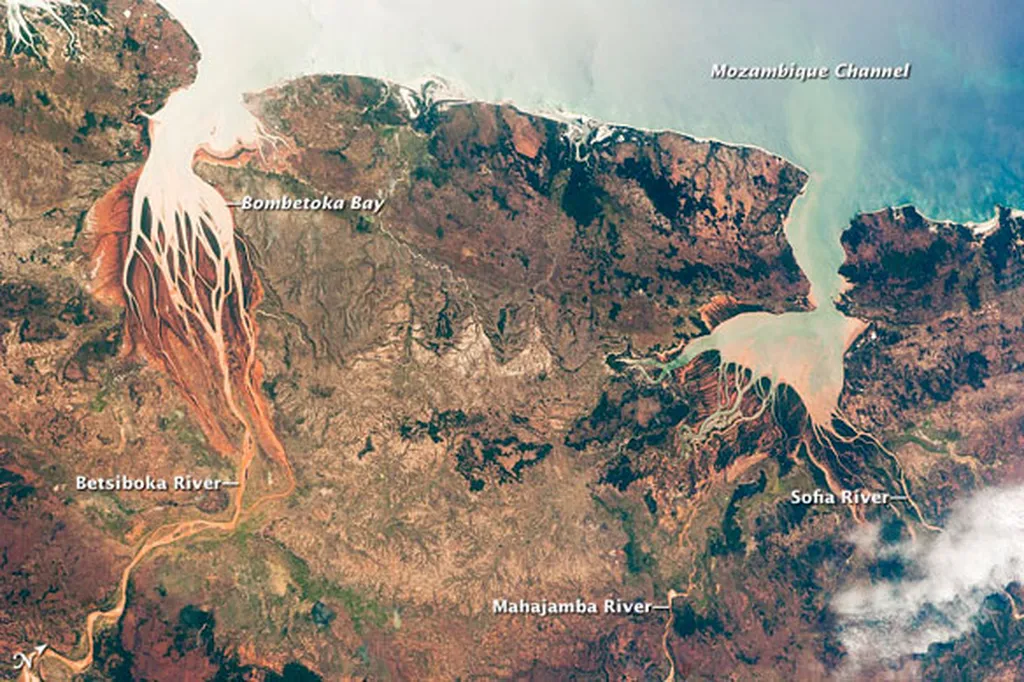In the heart of Madagascar, the Betsiboka basin, a region teeming with agricultural potential and dense populations, is facing an environmental crisis that could reshape the future of farming and sustainability in the area. A recent study published in ‘Trees, Forests and People’ has systematically mapped the alarming trends of deforestation and sediment load in this critical basin, offering a stark warning and a roadmap for potential interventions.
The research, led by Zy Harifidy Rakotoarimanana from the Graduate School of Informatics at Kyoto University, reveals that the Betsiboka basin has lost 27% of its tree cover between 2001 and 2024. This deforestation is not just an environmental concern but a significant threat to the agricultural sector, which relies heavily on the basin’s fertile lands. “Intensive deforestation in the Betsiboka basin has led to high sediment yield, putting the basin’s future sustainability at risk,” Rakotoarimanana warns. The study projects a 46% increase in sediment load by 2050, which could severely impact agricultural productivity and infrastructure.
The study’s systematic mapping highlights a critical gap in research focus. While 132 out of 236 studies on deforestation and fire concentrated on protected areas, the Betsiboka basin itself has received relatively little attention, with only 11 studies dedicated to it. This imbalance underscores the urgent need for more comprehensive research and policy interventions in the basin.
The economic implications are profound. The Betsiboka basin is known for its vast agricultural plains, and the projected decline in forest cover (44% by 2050), agricultural land (15%), and wetlands (33%) could have devastating effects on local and regional economies. The increased sediment load could lead to soil degradation, reduced crop yields, and infrastructure damage, all of which could disrupt the agricultural supply chain and economic stability.
The study also sheds light on the historical context of sediment yields, with figures ranging from 1300 to 19,800 t/year/km² between 1960 and 1967. These historical data points provide a baseline for understanding the current and future impacts of deforestation on sediment dynamics.
The research calls for urgent action from the Malagasy government and international organizations. Effective land and forest management interventions are crucial to mitigating the projected declines and ensuring the sustainability of the Betsiboka basin. The study’s projections and policy pathways offer a valuable framework for developing targeted strategies to address these challenges.
As the agricultural sector grapples with the implications of these findings, the study serves as a wake-up call for stakeholders to prioritize sustainable practices and invest in research and policy initiatives. The future of the Betsiboka basin and its agricultural potential hinges on the actions taken today to address the pressing issues of deforestation and sediment load.
This research, published in ‘Trees, Forests and People’ and led by Zy Harifidy Rakotoarimanana from the Graduate School of Informatics at Kyoto University, provides a critical foundation for shaping future developments in the field of agritech and environmental sustainability. The study’s insights and projections offer a roadmap for stakeholders to navigate the complex challenges ahead and work towards a more sustainable future for the Betsiboka basin and its agricultural communities.

